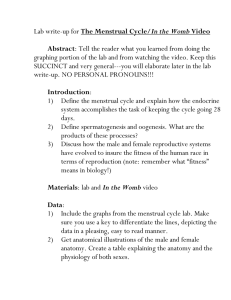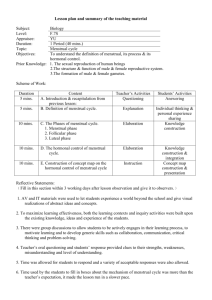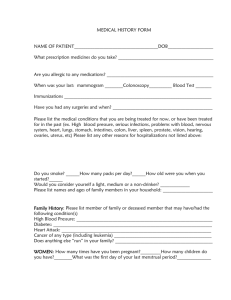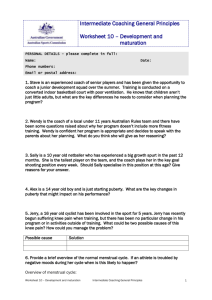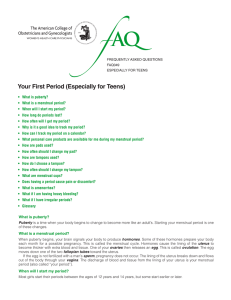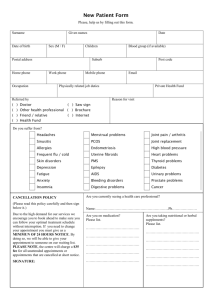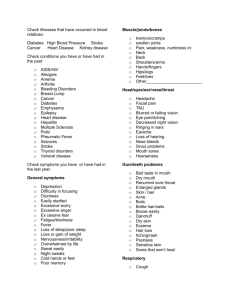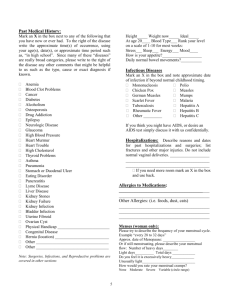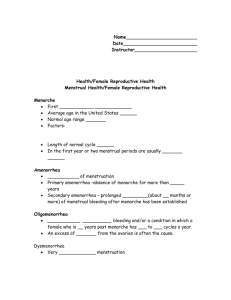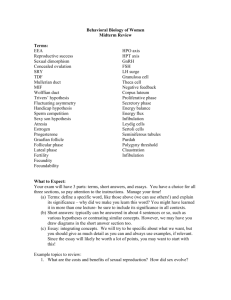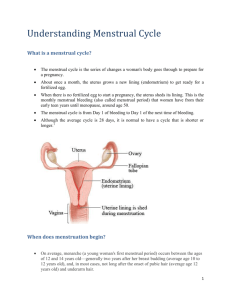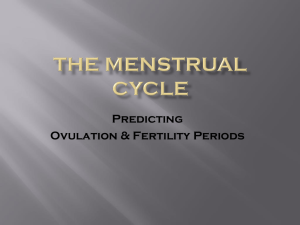Menstrual Cycle & Anatomy: 9th Grade Health Lesson Plan
advertisement
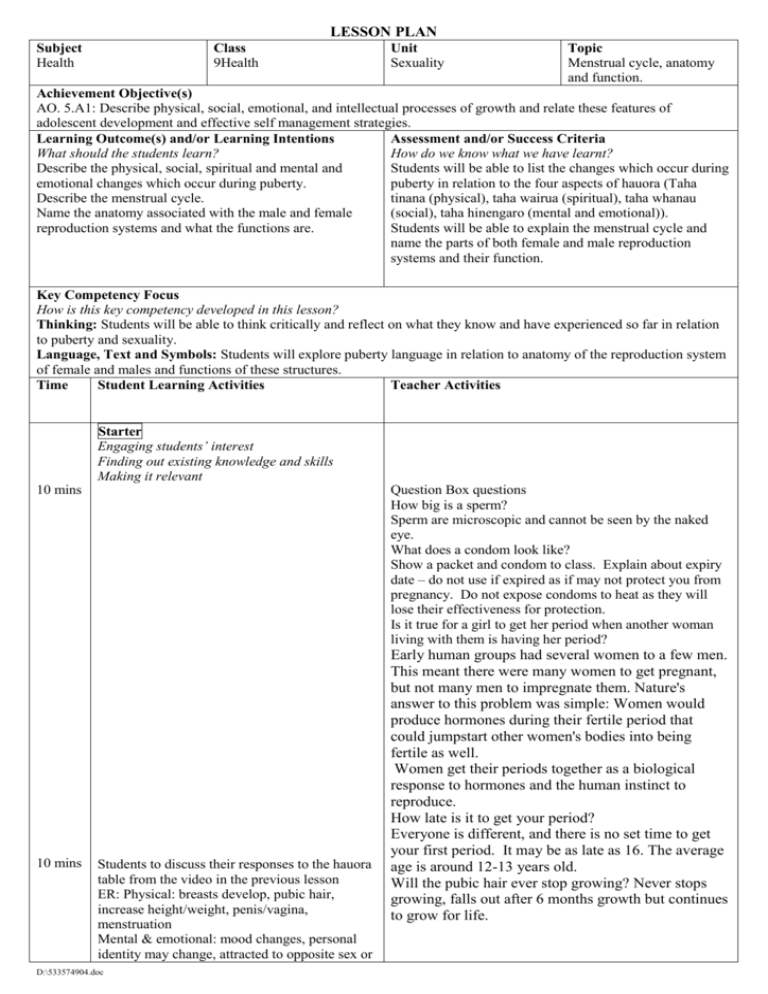
LESSON PLAN Subject Health Class 9Health Unit Sexuality Topic Menstrual cycle, anatomy and function. Achievement Objective(s) AO. 5.A1: Describe physical, social, emotional, and intellectual processes of growth and relate these features of adolescent development and effective self management strategies. Learning Outcome(s) and/or Learning Intentions Assessment and/or Success Criteria What should the students learn? How do we know what we have learnt? Describe the physical, social, spiritual and mental and Students will be able to list the changes which occur during emotional changes which occur during puberty. puberty in relation to the four aspects of hauora (Taha Describe the menstrual cycle. tinana (physical), taha wairua (spiritual), taha whanau Name the anatomy associated with the male and female (social), taha hinengaro (mental and emotional)). reproduction systems and what the functions are. Students will be able to explain the menstrual cycle and name the parts of both female and male reproduction systems and their function. Key Competency Focus How is this key competency developed in this lesson? Thinking: Students will be able to think critically and reflect on what they know and have experienced so far in relation to puberty and sexuality. Language, Text and Symbols: Students will explore puberty language in relation to anatomy of the reproduction system of female and males and functions of these structures. Time Student Learning Activities Teacher Activities Starter Engaging students’ interest Finding out existing knowledge and skills Making it relevant 10 mins 10 mins Question Box questions How big is a sperm? Sperm are microscopic and cannot be seen by the naked eye. What does a condom look like? Show a packet and condom to class. Explain about expiry date – do not use if expired as if may not protect you from pregnancy. Do not expose condoms to heat as they will lose their effectiveness for protection. Is it true for a girl to get her period when another woman living with them is having her period? Students to discuss their responses to the hauora table from the video in the previous lesson ER: Physical: breasts develop, pubic hair, increase height/weight, penis/vagina, menstruation Mental & emotional: mood changes, personal identity may change, attracted to opposite sex or D:\533574904.doc Early human groups had several women to a few men. This meant there were many women to get pregnant, but not many men to impregnate them. Nature's answer to this problem was simple: Women would produce hormones during their fertile period that could jumpstart other women's bodies into being fertile as well. Women get their periods together as a biological response to hormones and the human instinct to reproduce. How late is it to get your period? Everyone is different, and there is no set time to get your first period. It may be as late as 16. The average age is around 12-13 years old. Will the pubic hair ever stop growing? Never stops growing, falls out after 6 months growth but continues to grow for life. same sex, wet dreams, stress Social: friendships may change, relationships may develop, become more independent from family, interested in others in a sexual way, pressure from media/other friends. Spiritual: beliefs/values change, may relate better to a different culture/religion- change beliefs for support, coping, trust issues, 10-15 mins Anatomy and function of reproduction in males and females worksheet. Students will fill out the male and female reproductive system with correct labelling of structures. Students will also place the correct term next to the function. 10 mins Menstrual cycle taskStudents will order terms in the correct order of the 28 day menstrual cycle. Advantages/disadvantages of tampons/pads next lesson if students run out of time completing worksheet. Conclusion (wrap up) Reflection Question Box- students to fill in any questions they have and pop into the confidential question box to be answered in class next lesson. T to go over answers of anatomy terms and functions. T to discuss order of menstrual cycle with students Tampons: Advantages: can swim, shower, and bathe with a tampon in place and they are discreet, internal, more convenient for sport, feel cleaner as the tampon is worn inside the body. Disadvantages: at risk for TSS (Toxic shock syndrome) to prevent this remember to change tampon’s every 4hrs and never leave a tampon in for more than 8 hours. There is a higher risk for TSS with higher absorbency tampons Pads: Advantages: easy to use for first time, comfortable Disadvantages: Cannot wear them while swimming, external. Menstrual odour (when menstrual blood comes in contact with the air) Equipment Whiteboard Question box Resources http://menstrual-cycle-health.knoji.com/why-do-womens-menstrual-cycles-get-in-sync/ Anatomy and function of reproduction in males and females worksheet. Menstrual cycle worksheet Teacher Evaluation Student achievement – where to next? Teacher practice – what have I learnt? what will I change? D:\533574904.doc
